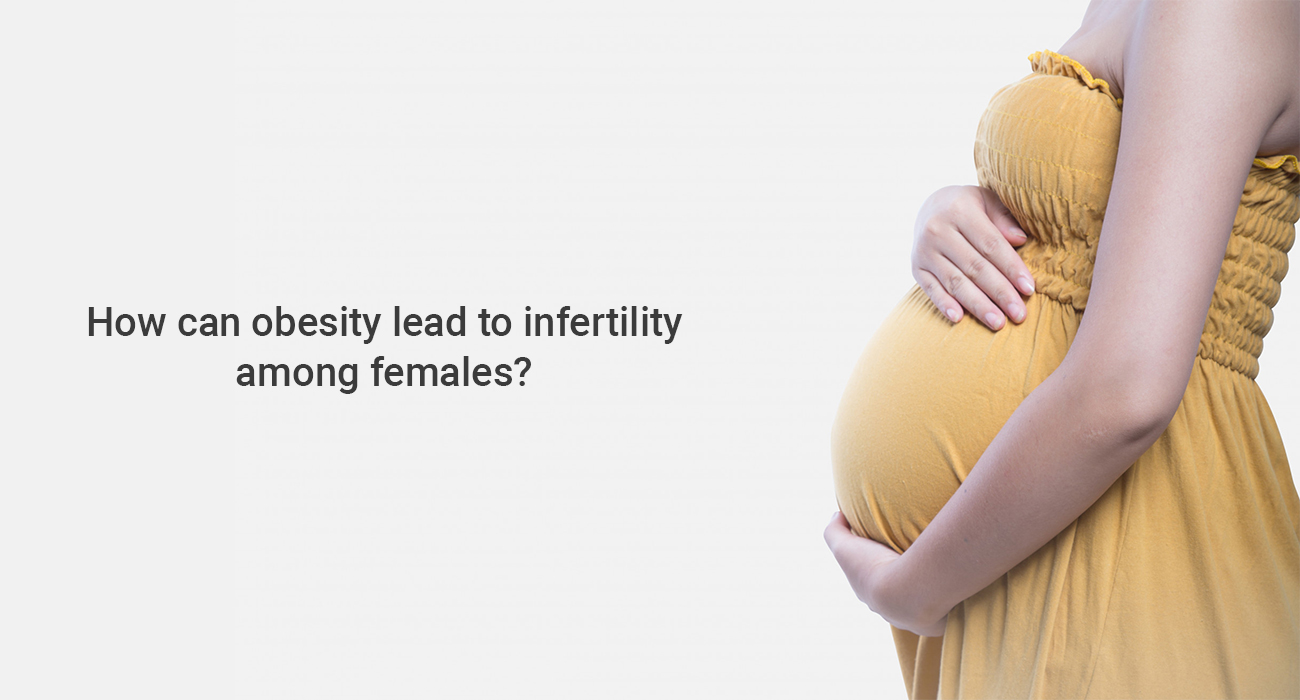12/06/2022
Obesity is the root cause of various chronic, life-threatening conditions and health diseases that has an impact on the normal functioning of the body including reproductive health. According to various studies, women who suffer from obesity usually undergo several hormonal disorders that cause menstrual dysfunction that further leads to infertility. Apart from hormonal disorders, there are other factors that may cause infertility such as Polycystic ovary syndrome PCOS, or PCOD which is one of the major causes of infertility among women these days. But women who are able to lose weight with the help of diet and modification in their lifestyle are able to restore their menstrual cycle, and ovulation and improve the chances of having conception and implantation.
Couples who spend more than a year to conceive usually face other kinds of fertility problems that require medical help and obesity is one of them. BMI is basically the body mass Index of a person which is based upon their weight and height; for instance, a woman of 5 feet 6 inches who has a weight of 110-150 pounds should have a BMI range from 20-24 which is normal. But women who are obese and have a BMI over 35 really face problems in getting pregnant due to various reasons.
The link between Obesity and Infertility:
According to various studies, it is revealed that there is a link between obesity and reproductive issues. Obesity generally decreases the rate of successful pregnancy and conception cycles which ultimately leads to infertility. In order to increase the chances of conception, gynecologist usually recommended reproductive therapy that helps in accelerating and augmenting the ovulation cycle which creates better chances of conception. In certain cases, high levels of leptin and decreased levels of adiponectin can also decrease the rate of conception but it can be restored easily with proper weight loss.
Several complications other than infertility such as
Anovulation: Anovulation is a condition in which the egg or the ovum does not release from the ovary during a normal menstrual cycle and it is one of the most common causes of infertility. It is seen that obesity is directly linked to anovulation which is actually caused due to insulin resistance. Obesity causes fluctuation in insulin levels that ultimately alter sex hormones, high levels of growth factor, and high levels of androgens that further hinder the normal fertility process. In such conditions, studies show that by losing a considerable amount of weight one can get rid of these fluctuations of hormones that can further increase the rate of ovulation and reduce any biochemical abnormalities.
Complicated pregnancy: Complications in pregnancy are quite common but women who have obesity issues have a greater risk of having complications that could be life-threatening to the fetus and the mother. Usually, women face problems such as high blood pressure which is known as preeclampsia, and insulin resistance which also causes diabetes during pregnancy which is also known as gestational diabetes. All these factors cause great complications in pregnancy in obese women.
Miscarriage: It is seen that obesity is linked with miscarriages and obese women are likely to have an increased rate of miscarriage. This ultimately leads to decreased rate of successful pregnancy which may be caused due to poor quality of eggs, defective implantation, altered levels of hormones, insulin resistance, weak uterus, etc
Hormones: Hormones play a great role in reproductive cycles and women who suffer from obesity are likely to have disturbed hormonal cycles. In many cases, obesity causes increased levels of androgen and estrogen that cause problems in both fertility and pregnancy.
Eternal Hospital is one of the best gynecology hospitals in Jaipur. We have a team of the best gynecologist doctors in Jaipur who have years of experience in handling complicated pregnancies and infertility. If you have any query regarding fertility or pregnancy then contact Eternal hospital for expert and specialized treatment, assistance, and care.

